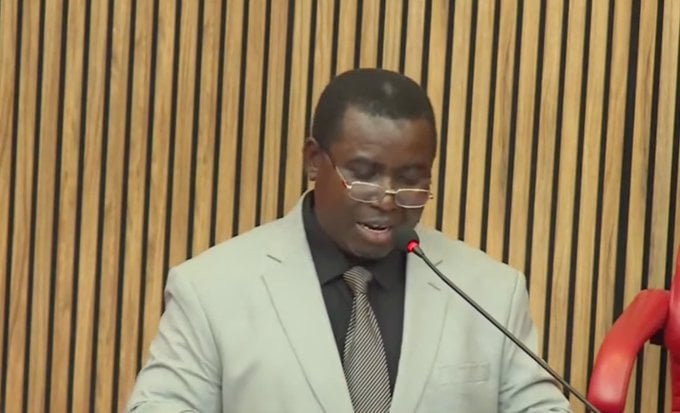Since Nigeria’s independence in 1960, Independent National Electoral Commission (INEC) has undergone several transformations.
Each phase has been marked by unique challenges, reforms, and controversies that shaped the democratic experience. Below is a comprehensive review of every electoral umpire who has led Nigeria’s elections from independence till date.
ATTENTION: Click “HERE” to join our WhatsApp group and receive News updates directly on your WhatsApp!
Chief Eyo Esua (1964–1966) was the pioneer chairman of Nigeria’s electoral body. Appointed in the early years of independence, he supervised the 1964 federal elections and the 1965 regional elections.
Both polls were marred by irregularities and political violence that contributed to the collapse of the First Republic in 1966.
Under the military regime of General Olusegun Obasanjo, Chief Michael Ani (1976–1979) chaired the Federal Electoral Commission (FEDECO) and oversaw the 1979 transition programme that ushered in the Second Republic. His leadership laid the foundation for a return to civil rule after years of military governance.
Justice Victor Ovie-Whisky (1980–1983) presided over the 1983 general elections, which were heavily criticized for widespread electoral malpractice. The disputed polls eventually led to the military coup that ended the Second Republic on December 31, 1983.
Professor Eme Awa (1987–1989) took charge of the National Electoral Commission (NEC) during the regime of General Ibrahim Babangida. He introduced modest reforms as part of the government’s transition to the aborted Third Republic but resigned in 1989 following disagreements with the military authorities.
Professor Humphrey Nwosu (1989–1993) is remembered for conducting the historic June 12, 1993 presidential election, widely considered the freest and fairest in Nigeria’s history. The election, presumed to have been won by Chief Moshood Kashimawo Abiola, was later annulled by the Babangida administration, plunging the country into political turmoil.
Professor Okon Uya (1993) briefly succeeded Nwosu during the short-lived Interim National Government led by Chief Ernest Shonekan. His tenure was transitional and marked the winding down of NEC’s activities before another military intervention.
READ ALSO: APC, Buhari Have Failed To Create Jobs For Nigerians Despite Electoral Promises – Onochie
Sumner Dagogo-Jack (1994–1998) was appointed by General Sani Abacha to head the National Electoral Commission of Nigeria (NECON). He managed the transition programme of the Abacha regime and conducted several elections that were widely seen as stage-managed to favour the military’s political agenda.
Justice Ephraim Akpata (1998–2000) became the first chairman of the Independent National Electoral Commission (INEC) following the return to civil rule.
Appointed by General Abdulsalami Abubakar, he successfully conducted the 1999 general elections that brought President Olusegun Obasanjo to power, marking the beginning of the Fourth Republic.
Dr. Abel Guobadia (2000–2005) succeeded Akpata and presided over the 2003 general elections. Though the polls were criticized for irregularities, his tenure helped to stabilize the electoral institution during the early years of the Fourth Republic.
Professor Maurice Iwu (2005–2010) took over as INEC chairman under the administration of President Olusegun Obasanjo. He conducted the 2007 general elections, which were roundly condemned for widespread irregularities but marked a significant logistical expansion of INEC’s capacity.
Professor Attahiru Jega (2010–2015) was appointed by President Goodluck Jonathan. His tenure is credited with introducing technological innovations such as the Permanent Voter Card (PVC) and the Smart Card Reader. He conducted the 2011 and 2015 elections, the latter of which produced Nigeria’s first peaceful transfer of power between two major political parties.
Professor Mahmood Yakubu (2015–present) succeeded Jega and has remained Nigeria’s electoral umpire through the 2019 and 2023 general elections. His tenure has witnessed both reforms and controversies, including the introduction of the Bimodal Voter Accreditation System (BVAS) and the electronic result transmission process. He continues to serve under the current administration of President Bola Ahmed Tinubu.
From Eyo Esua’s FEC to Mahmood Yakubu’s INEC, Nigeria’s electoral history reflects the nation’s journey through decades of political evolution, reform, and resilience.
Senate approves appointment of Amupitan as INEC chair
The Senate has confirmed Professor Joash Amupitan as the new Chairman of the Independent National Electoral Commission.
The Red Chamber confirmed Amupitan after a voice vote conducted by Senate President Godswill Akpabio and after undergoing screening and answering questions posed by the lawmakers.

